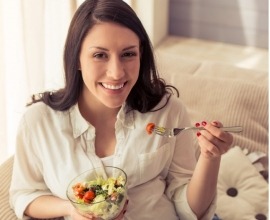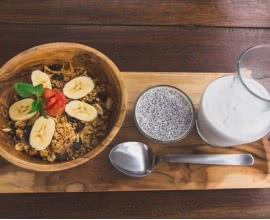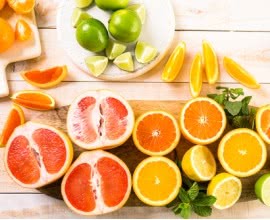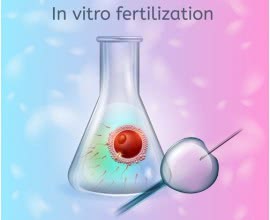Are Food Taboos Real for Pregnancy and Fertility?
The irony behind the recommendation that couples whom have been trying to conceive ought to eat a healthy diet is that this is recommended to everyone already. Perhaps this serves mostly as a reminder to simply put a hold on any bad habits and cravings that may be taking over what was once a balanced, healthy diet. Follow along as I outline common food taboos for both TTC and expecting couples.
Public health and nutrition for the sake of maintaining fertility
Taking a prenatal vitamin containing extra folic acid and B12 has already long been established as common protocol for women trying to conceive. This is predominantly because folic acid can reduce the risk of the fetus developing neurological problems. Harvard T. H. Chan School of Public Health and Harvard Medical School published research back in 2018 that also indicated positive effects for those whom consumed a Mediterranean diet and additional omega-3 fatty acids on top of the traditional prenatal vitamin mix.[1]
Interestingly, many consumables did not at least contribute negatively towards participants’ fertility rates. Antioxidants, vitamin D, dairy, soy, caffeine and alcohol had seemingly little to no impact, while other consumables did show a negative impact. These food ‘taboos’ include:
-
Red meats
-
Processed meats
-
Potatoes
-
Sweets
-
Sweetened beverages [2]
For men in particular, studies have found that semen quality suffers when a man consumes lots of saturated fats and trans fats, but it also improves with the introduction of antioxidants into one’s diet. An additional aid to fertility that women should also consider incorporating into their diets are isoflavones, which are plant-based estrogens with antioxidant properties.[3]
Isoflavones are most prevalent within foods like edamame and miso soup but they also exist in split peas, pigeon peas, peanuts, chickpeas, lima beans, fava beans, lentils and flaxseed.[4]

Pregnancy food taboos
As already established, good nutrition is important to women who are expecting and trying to conceive. Yet, food taboos often float around unchecked like old-wives’ tales and pieces of advice differ drastically across the globe as to what to consume more and what to consume less. For example, Iranian women drink extra pomegranate juice while Filipino women abstain from coffee, and Cambodian women? They say no to rice porridge. Between all these differing approaches, it makes one wonder if there could ever be any universal dietary trick.[5]
There is one fact to acknowledge here for a different reason altogether, however, and that is exposure to toxins. Mercury in particular.
Women throughout most of Asia and the Western hemisphere are recommended to stay away from raw and undercooked seafood in particular because of potential exposure to infection-causing bacteria, yet the consumption of cooked shrimp, pollock, tilapia and cod is generally deemed okay, specifically because they are lower in the food-chain and thus contain the lowest levels of mercury.[6][7]
Now that’s food for thought.
At our Czech clinic, we offer affordable fertility treatment so that you can incorporate your family-planning goals into a memorable vacation. Check out this link here for more details.
Sources:
[1] Shmerling, Robert H, and Alison Shmerling. “Fertility and Diet: Is There a Connection?” Harvard Health Publishing, Harvard University, 3 Nov. 2020, www.health.harvard.edu/blog/fertility-and-diet-is-there-a-connection-201...
[2] Ibid.
[3] Ibid.
[4] Kannall, Erica. “Sources of Isoflavones.” SF Gate, Hearst Communications, 17 Dec. 2018, healthyeating.sfgate.com/sources-isoflavones-8295.html.
[5] Khurana, Deepika. “Pregnancy Food Taboos - Are They Same around the World?” Health Analytics Asia, OW DATALEADS PVT LTD, 9 Aug. 2019, www.ha-asia.com/pregnancy-food-taboos-are-they-same-around-the-world/.
[6] “Pregnancy and Fish: What's Safe to Eat?” Mayo Clinic, Mayo Foundation for Medical Education and Research (MFMER), 13 July 2019, www.mayoclinic.org/healthy-lifestyle/pregnancy-week-by-week/in-depth/pre...
[7] ten Bosch, Laurentine. “The Most Toxic Fish That You Should Avoid.” FOOD MATTERS, Food Matters International Pty Ltd, 28 Dec. 2016, www.foodmatters.com/article/the-most-toxic-fish-that-you-should-avoid.














